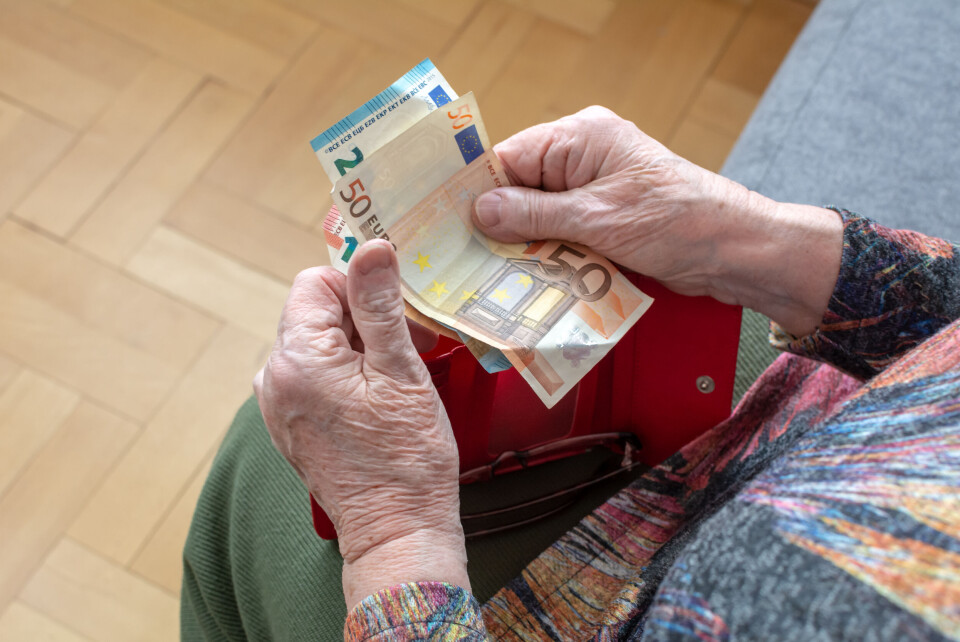-
Money, taxes, pensions: What's new in France in 2026
New money-saving budget, allowances, income tax freeze and retirement age
-
Dates 2026: Family allowance payments and other French benefits
The payment date varies if it falls on a weekend
-
Will we have to pay back any of the French Aspa pension top-up money we have received?
Benefit can become repayable after a recipient’s death
French benefit explainer: Aspa low pension income top-up
We look at who is eligible, how to apply and why only half those entitled to the retirement aid apply

We guide you through the French pension top-up aid Allocation de solidarité aux personnes âgées (Aspa).
What is it?
Aspa is a monthly benefit that serves to top up low pensions.
It used to be known as the minimum vieillesse (old-age minimum) and is still commonly referred to as such.
It is meant to work as a safety net for pensioners who might not have paid much into the system and thus do not have the right to claim a significant pension.
Read more: Poor exchange rate: France’s pension top-up benefit may help
Eligibility criteria
In order to claim Aspa, you need to live in France and be at least 65, although you might be eligible at 62 if you have a disability and are unable to work, for example.
Your gross monthly income must also not surpass (June 2023 figures): €961.08 if you live alone, or €1,492.08 for a couple.
Pension payments and professional income are taken into account when calculating your eligibility, but some other sources of income are not, including disability benefits.
Can non-French residents apply?
Non-French people are eligible if they live in France, even if they do not receive a French pension, provided they come under one of the following categories:
-
Citizens of the EU/EEA, Switzerland, or the UK
-
Citizens of Algeria, Andorra, Benin, Cape Verde, Congo, Gabon, Israel, Madagascar, Mali, Morocco, Monaco, Senegal, Togo, Turkey, or Tunisia, under certain conditions
-
Refugees, stateless individuals
-
Citizens from other countries who have held a residency permit authorising them to work in France for at least 10 years
Read more: Can foreign residents access France’s pension top-up benefit?
Amount of benefit
The maximum amount you can receive is equal to the income thresholds for making a claim, ie. €961.08 gross if you live alone, or €1,492.08 for couples if both people claim.
The exact amount is calculated by subtracting your income from the maximum amount, so if you live alone and earn €800 per month, you would receive €161.08.
Where to apply?
Aspa is not paid out automatically.
If you have a French pension, you apply for Aspa via that pension fund, which is usually the Caisse nationale d’assurance vieillesse (Cnav).
Find the application form here.
If you do not have a French pension, you can apply to a body called Saspa that is currently run by the Mutualité Sociale Agricole (MSA), which usually deals with farmers’ pensions.
In that case, you should submit a form to your commune’s mairie or centre communal d’action sociale (CCAS).
They should provide you with the form, but it is also available here.
Good to know
It is important to note that amounts paid out may be deducted from your estate after your death if the estate’s value is more than €39,000.
From September 1, this minimum threshold will be increased to €100,000, in an attempt to encourage more people to apply for the Aspa benefit.
Only half of those eligible actually claim it, according to a report by the Drees statistics agency, with the prospect of payments being taken out of the future inheritance cited alongside a lack of information as reasons many do not claim.
In 2016, of 646,800 eligible people, only 325,700 claimed. It is estimated that eligible people who did not claim missed out on €205 per month on average.
If the estate is inherited by the person’s spouse, repayment can be put off until the latter’s death.
Related articles
Explainer: the CSS, France’s free or low cost top-up health insurance
Explainer: how French pension can unlock US Social Security benefits
























